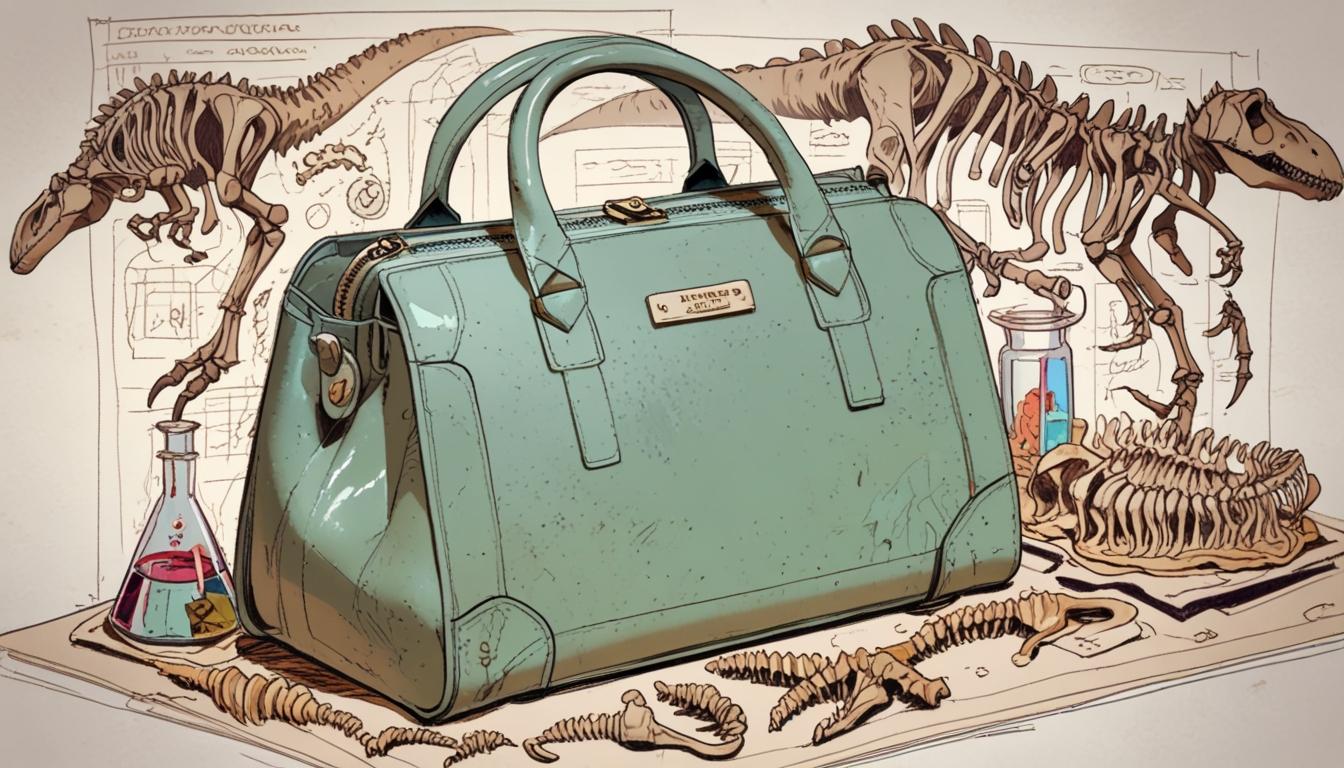A collaboration involving the US-based marketing agency VML and two biotechnology companies—The Organoid Company from the Netherlands and Lab-Grown Leather Ltd from the UK—has set its sights on transforming the luxury fashion sector with lab-grown T-rex leather. This innovative material, produced from fossilized T. rex collagen, is positioned as an eco-friendly and cruelty-free alternative to conventional leather.
However, the initiative has faced scepticism from the paleontological community. Experts highlight the significant challenges associated with claims of producing genuine T-rex leather. Thomas Holtz, Jr., a vertebrate paleontologist at the University of Maryland, has raised concerns about the veracity of the project's goals, describing them as “misleading.” He points out that, owing to the degradation of DNA over time, no dinosaur-era DNA has been uncovered to date. The oldest known preserved DNA is roughly 2 million years old, whereas the extinction of T. rex occurred around 66 million years ago. Holtz further mentions the scarcity of preserved soft tissues in fossils, which raises doubts about obtaining sufficient evidence for the authenticity of the proposed leather.
The proposed T-rex leather would utilise collagen, a protein that has been identified in some remnants of fossilized T. rex bones. Initially thought to be lost through the fossilization process, this collagen has recently been identified in certain dinosaur remains. Nonetheless, experts like Thomas Carr, an associate professor of biology at Carthage College, remain unconvinced about the feasibility of using T-rex collagen for leather production. Carr points to the fragmented understanding of fossilized polypeptides and suggests that without a comprehensive grasp of the collagen's characteristics, the potential for creating a viable leather alternative remains in doubt.
While the partnership between VML and the biotechnology firms presents a compelling concept, the prevailing scepticism from scientists underscores the considerable obstacles ahead. The lack of T. rex DNA and limited available evidence of soft tissues significantly complicate efforts to produce authentic T-rex leather. As the fashion industry intensifies its pursuit of sustainable and ethically sourced materials, the exploration of lab-grown alternatives continues to attract attention. However, the practicality of employing T-rex collagen in crafting luxury accessories remains uncertain as researchers grapple with the complexities of ancient biological materials.
Source: Noah Wire Services
